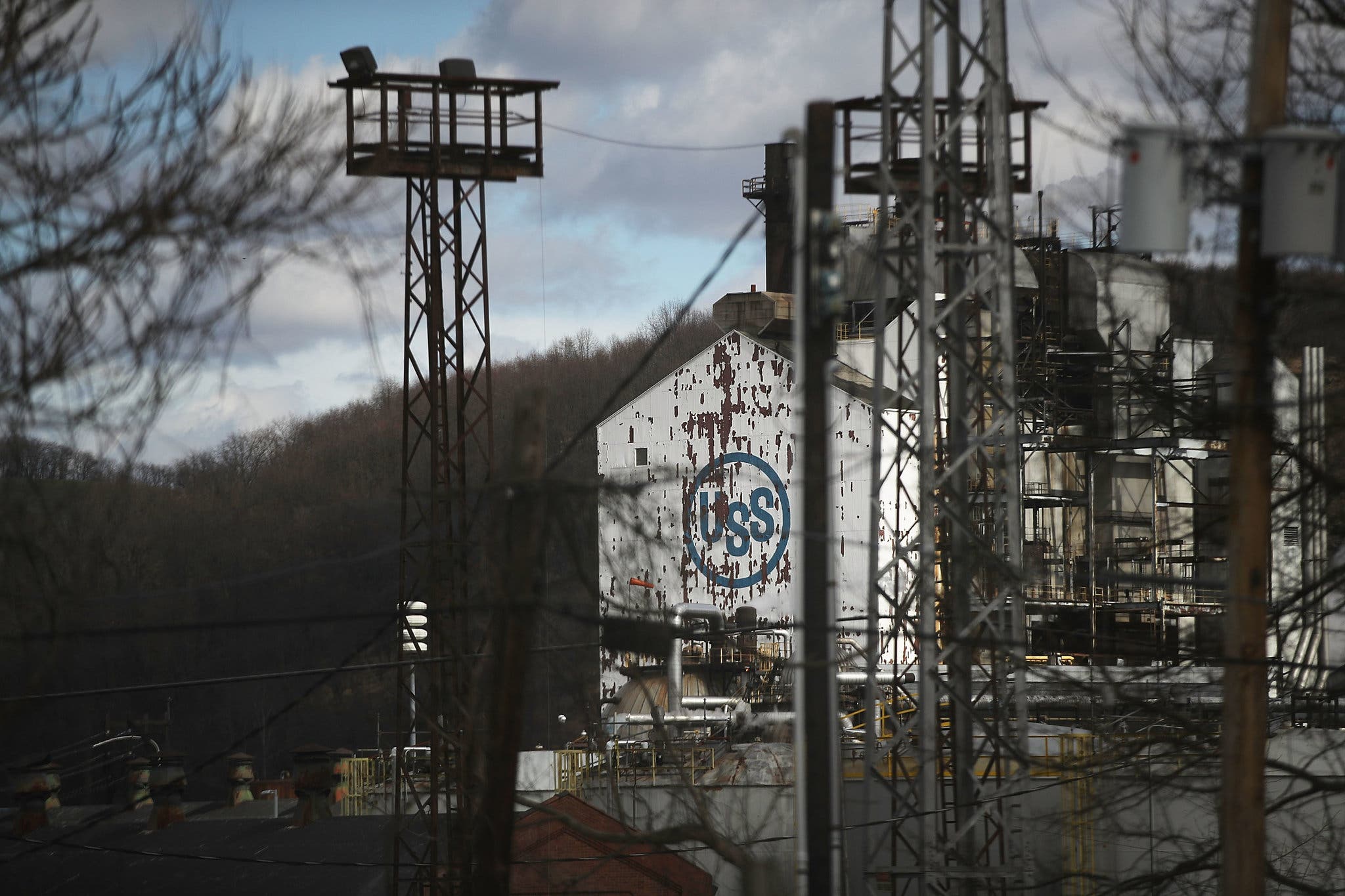The Upcoming German Election: A Turning Point?

Table of Contents
Key Contenders and Their Platforms
The German election features several key players vying for power. Understanding their platforms is crucial to predicting the election's outcome and its potential impact on Germany's future.
CDU/CSU Platform
The Christian Democratic Union (CDU) and its Bavarian sister party, the Christian Social Union (CSU), are traditionally strong contenders in German elections. Their current platform focuses on several key areas:
- Economy: Fiscal conservatism, tax cuts for businesses and middle-income earners, and promoting economic growth through private sector investment.
- Immigration: A stricter approach to immigration, focusing on controlled immigration based on skill needs and tighter border security.
- European Union: Strong support for the EU, advocating for deeper integration and reform within the existing framework.
Potential internal struggles within the CDU/CSU, particularly regarding leadership and policy disagreements, could impact their performance in the election.
SPD Platform
The Social Democratic Party (SPD) presents a more left-leaning alternative. Their platform emphasizes:
- Economy: Investing in social programs, increasing minimum wage, and promoting sustainable economic growth.
- Social Justice: Strengthening social safety nets, improving access to affordable healthcare and education, and promoting gender equality.
- Climate Change: Ambitious climate action, transitioning to renewable energy sources, and investing in green technologies.
- Foreign Policy: A strong commitment to multilateralism and international cooperation, particularly within the EU and NATO.
Internal debates within the SPD regarding the balance between social spending and fiscal responsibility might influence their campaign strategy.
Green Party Platform
The Green Party (Grüne) has seen a significant rise in popularity in recent years, focusing on:
- Environment: Aggressive climate action, rapid expansion of renewable energy, and phasing out fossil fuels.
- Social Justice: Promoting social equality, tackling poverty and inequality, and supporting marginalized communities.
- Economy: Investing in green jobs and sustainable industries, promoting a circular economy, and supporting fair trade.
Their potential for forming a coalition government and influencing the next government's agenda is considerable. Their emphasis on climate change resonates strongly with younger voters.
FDP and AfD Platforms
The Free Democratic Party (FDP), a liberal party, champions free markets and individual liberties. The Alternative for Germany (AfD), a right-wing populist party, focuses on anti-immigration policies and Euroscepticism. Their platforms, while distinct, could significantly impact coalition negotiations and the overall political landscape post-election. Understanding their core policies and potential influence is vital for a complete picture of the German election.
Major Election Issues Shaping Voter Opinions
Several key issues are dominating the political discourse and shaping voter opinions in the lead-up to the German election.
The Economy and Post-Pandemic Recovery
Germany's economic recovery from the COVID-19 pandemic is a central election issue. Key aspects include:
- Unemployment rates: Maintaining low unemployment and addressing potential job losses in affected sectors.
- Inflation: Controlling rising inflation and its impact on household budgets.
- Investment: Stimulating investment to support economic growth and innovation.
- Digitalization: Investing in digital infrastructure and promoting the digital economy. Different parties have varying approaches to these challenges, influencing voter choices significantly.
Climate Change and Environmental Policies
Climate change is another critical issue, with voters increasingly concerned about environmental protection.
- Renewable energy targets: The pace of transition to renewable energy and the level of investment in green technologies.
- Emission reduction goals: The stringency of emission reduction targets and the policies for achieving them.
- Climate adaptation measures: Measures to adapt to the impacts of climate change, such as extreme weather events.
The Green Party holds a strong position on this issue, but all parties have released climate-related policies in response to public pressure.
Immigration and Integration
Immigration and integration remain highly debated topics, impacting voter decisions.
- Refugee policy: Handling of asylum seekers and refugees.
- Integration programs: Support for integrating immigrants into German society.
- Border security: Measures to control immigration at the borders.
The different parties' stances on these aspects significantly influence voter preferences.
European Union and Geopolitical Relations
Germany's role within the EU and its relations with other countries also play a significant role.
- EU budget: Germany's contribution to the EU budget and its position on EU spending priorities.
- Foreign policy: Germany's stance on major international issues such as the war in Ukraine and relations with Russia.
- EU reform: Germany's role in shaping EU reforms and future directions. Public opinion on these topics has a direct effect on voting patterns and party preference.
Potential Election Outcomes and Their Implications
Several scenarios are possible following the election, each with significant implications.
Coalition Governments and Their Challenges
Given the multi-party system in Germany, coalition governments are common. The potential combinations and their associated policy priorities are numerous:
- Jamaica coalition (CDU/CSU, FDP, Greens): A potential scenario characterized by a balance between fiscal conservatism and environmental policies.
- Traffic light coalition (SPD, FDP, Greens): A centre-left coalition that could pursue ambitious social and environmental policies.
- Grand coalition (CDU/CSU, SPD): A coalition that has historically offered stability but may lack dynamism.
The challenges of forming and maintaining a stable coalition are significant, depending on the ideological differences between coalition partners.
Impact on European Politics
The outcome of the German election will likely impact Germany's role within the EU and its international relations.
- EU leadership: Germany's leadership role within the EU could shift depending on which party or coalition forms the government.
- Foreign policy: The election outcome may lead to changes in German foreign policy, particularly regarding relations with other European countries and global powers.
- EU decision-making: The government's composition could impact Germany's approach to EU decision-making processes.
This German election could fundamentally alter the political landscape of Europe.
Conclusion
The upcoming German election presents a significant opportunity for change. The outcome will shape not only Germany's domestic policies but also its influence on the European stage. Understanding the key contenders, their platforms, and the major issues at stake is crucial for comprehending the potential impact of this election. By following the developments closely and engaging with the political discourse, we can better understand whether this election truly marks a turning point for Germany. Stay informed about the German election and make your voice heard! Understanding the nuances of this German election is key to comprehending its potential impact on Germany and Europe.

Featured Posts
-
 How Trumps Tariffs Shut The Door On Affirm Holdings Ipo Prospects
May 14, 2025
How Trumps Tariffs Shut The Door On Affirm Holdings Ipo Prospects
May 14, 2025 -
 Lindt Opens Central London Chocolate Paradise A New Store Experience
May 14, 2025
Lindt Opens Central London Chocolate Paradise A New Store Experience
May 14, 2025 -
 Transfer Race Chelsea Ahead Of Man Utd For Sunderlands Bellingham
May 14, 2025
Transfer Race Chelsea Ahead Of Man Utd For Sunderlands Bellingham
May 14, 2025 -
 Adam Levines Comeback A Recap Of The Voice Season 27 Episode 3
May 14, 2025
Adam Levines Comeback A Recap Of The Voice Season 27 Episode 3
May 14, 2025 -
 Uruguays Ex President Mujica Passes Away At 89
May 14, 2025
Uruguays Ex President Mujica Passes Away At 89
May 14, 2025
